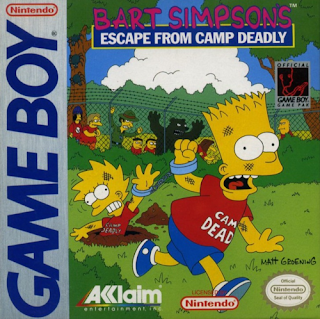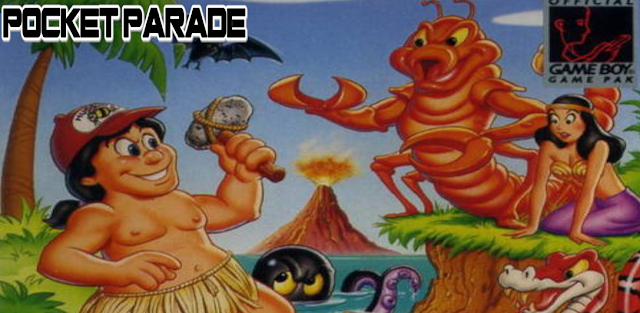
The Simpsons is one of the most important cartoons of all time, regardless of your opinion on its quality over its 30+ years of life. It saved adult animation, while still being a product that kids could enjoy. And a product that could hock any old crap. And that seems like an apt way to start an essay on the Game Boy debut, Bart Simpson's Escape From Camp Deadly.
Thursday, February 18, 2021
Bart Simpson's Escape From Camp Deadly: Having a Cow, Man!
Saturday, January 30, 2021
Mortal Kombat: Flawed Failure
Publisher: Acclaim
Monday, January 25, 2021
Tiny Toon Adventures: Wacky Sports: Hare Ball
Monday, January 18, 2021
Animaniacs: Animaney! Totally Insaney! Game Boy Gamey!

Because the world of pop culture hasn't really evolved since the mid-90s, Animaniacs is back. The series received a reboot/series revival of sorts in November of 2020 on Hulu, and despite some issues, it feels like a solid revival of one of the biggest cartoons of the 90s. So, what better time while the series is coasting on its old fans and new audience by covering Konami's take on the series for the Game Boy? Let's look at Animaniacs.
Publisher: Konami
Sunday, January 17, 2021
Donkey Kong Land: Eight Bit Apes

It can't be understated just how important Donkey Kong Country was. Not just as an example of the advancement of computer technology, but by proving that the aging Super Nintendo could still hold its own as a 16-bit console going deep into an already heated 32-bit war as the development of the Nintendo 64 would take a lot longer than expected. It also turned developer Rare into a household name, proving they could deliver quality whenever the situation demanded. But Rare wasn't just content with proving their mettle on the SNES, they sought to bring their vision of the great ape of gaming to the smallest screen, thus giving us Donkey Kong Land.
Tuesday, December 29, 2020
Adventure Island: Me, Myself and Island
Sunday, December 6, 2020
Tiny Toon Adventures: Babs' Big Break: Splitting Hares

Year of Release: 1992
Publisher: Konami
The 90s are still alive and kicking in terms of media and reboots. As of this writing, Animaniacs was revived by Hulu and has offered a decent continuation of the classic series. One month prior to Animaniacs' relaunch, it was announced that the predecessor to Animaniacs, Tiny Toon Adventures, was also being revived for a new animated series airing on Cartoon Network and HBOMax. So with the revival of the Spielberg cartoon era underway, I've been rewatching Tiny Toon Adventures as well as collecting many of the games based on the series. It's kind of a surprising list of games stretching into the mid-2000s, over a decade after Tiny Toon ended. But the best run for the franchise came during the show's heyday with their partnership with Konami.
For the uninitiated, Tiny Toon Adventures was an animated series from 1990-1994 and had Steven Spielberg as its executive producer. The series followed a new generation of Looney Tunes characters known as the Tiny Toons as they deal with the wacky world of the 1990s. The cast of characters included Buster and Babs Bunny (no relation), Plucky Duck, Hamton J. Pig, Elmyra Duff, Montana Max, Furrball, Dizzy Devil and many more. The show proved a huge success and would kick of a strong decade for Warner Bros. animation with its follow up Animaniacs being an even bigger success.










